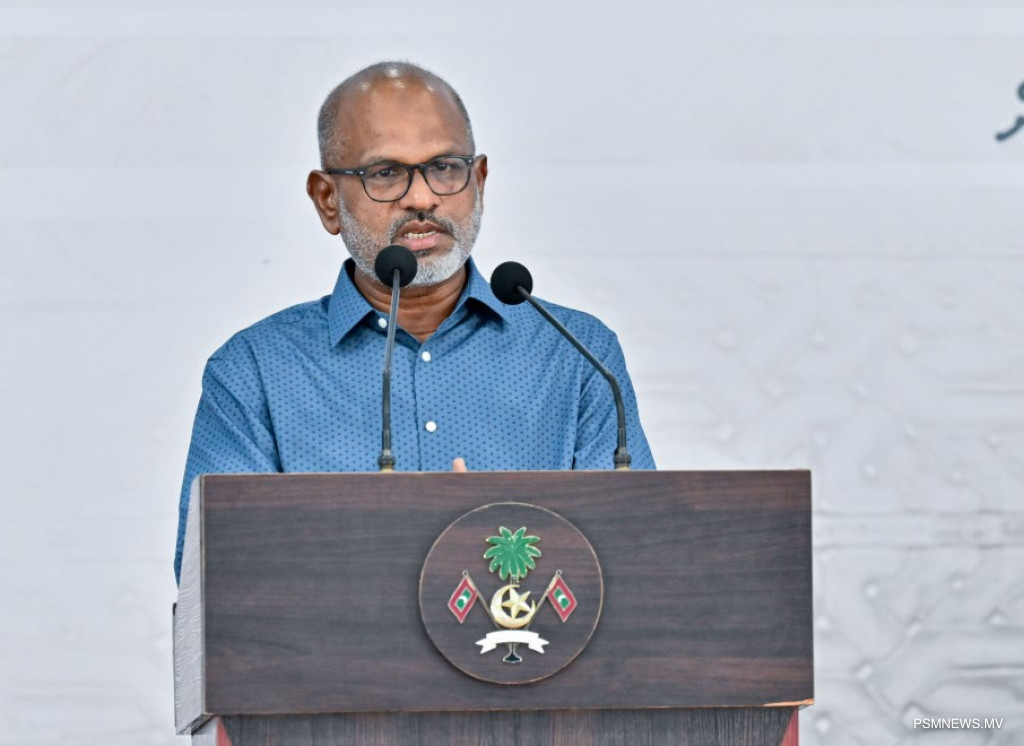
Ahmed Nazim, Deputy Speaker of the Parliament, has defended the administration of President Dr Mohamed Muizzu, asserting that its policy decisions, though subject to public criticism, are essential to securing the nation’s long-term stability and development.
Addressing residents of Dhiggaru, Meemu Atoll, during a meeting with President Muizzu, Deputy Speaker Nazim described the government’s actions as deliberate and necessary. He framed them as part of a broader effort to reverse economic stagnation and confront structural challenges.
The deputy speaker acknowledged the difficult fiscal conditions inherited by the administration, but pointed to recent progress as evidence of its effectiveness. “With the implementation of sound policies,” he said, “the government is successfully restarting numerous stalled projects and paving the way for new ones.” He argued that overcoming initial financial constraints to initiate development efforts reflects the administration’s competence in delivering tangible results.
Attention, he said, has also turned to long-standing social issues. Deputy Speaker Nazim cited efforts to regulate undocumented migrant workers, combat the national drug epidemic, and safeguard judicial independence as indicative of the government’s resolve.
“It is evident that sincere efforts are underway to rectify any shortcomings,” he said. “We are witnessing the principal figures in the drug trade receiving their rightful punishment. Furthermore, we are seeing tangible solutions being implemented for long-standing social issues.”
Although some measures have drawn public criticism, Deputy Speaker Nazim maintained that both the government and parliament have acted in the nation’s best interest. He described decisions concerning foreign currency, narcotics, and media regulation as vital to preserving social cohesion.
“The decisions concerning the US dollar, narcotics, and more recently the media, are particularly noteworthy,” he said. “These were essential measures, taken to sustain the very fabric of our society. In the future, these will be recognised as the correct decisions.”
Looking ahead, Deputy Speaker Nazim outlined the parliament’s legislative agenda, including proposed amendments to the Decentralisation Act. He stated that the reforms aim to enhance the efficiency of local councils and improve public service delivery. The legislative work, he added, will be undertaken to ensure that citizens “can fully experience the sweet benefits of the decentralised system.”
